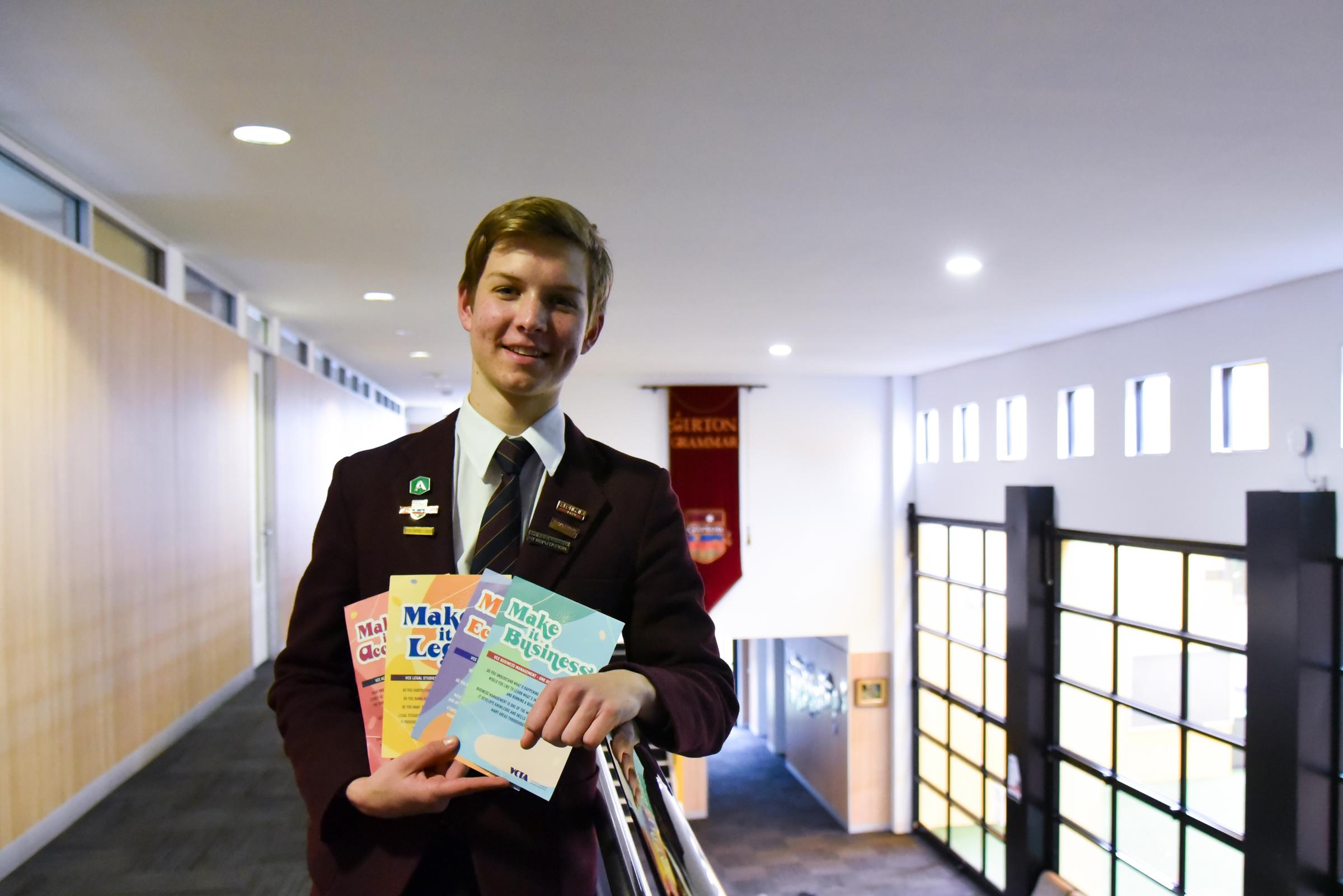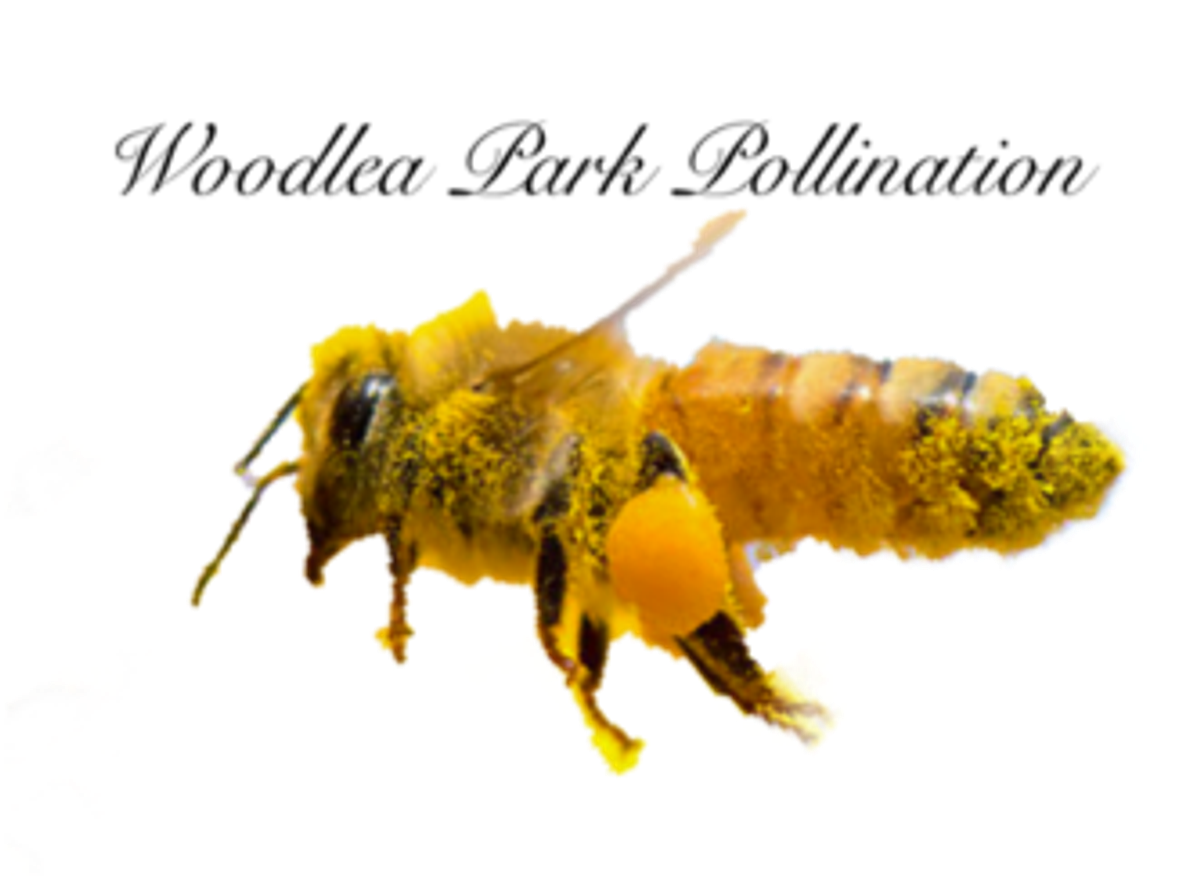Business News

Plan Your Own Enterprise Competition
Congratulations to Angus Fraser (Year 10 Aherne) who was successful in the Plan Your Own Enterprise competition Sponsored by Chartered Accountants Australia and New Zealand, which all Year 10 students studying VCE Business Management Unit ½ participated in.
Angus is one of three Victoria State finalists who travelled to Melbourne on Wednesday September 11 to present his business plan to a panel of three Judges. He then presented a five minute speech about his business plan to a wider audience of invited guests, finalists, families and friends prior to the State Winner being announced.
Angus’s plan is about a bee pollination service and makes for a very interesting read. He is extremely passionate and knowledgeable about bees and all things pollination.
Angus was fortunate enough to come Runners Up in the State final. Congratulations to Angus on his hard work and this wonderful achievement.
Speech presented by Angus Fraser at the Plan Your Own Enterprise Competition:
Good afternoon everyone. Could I please have a show of hands for those of you who have seen the bee movie? Alright, most of you. For those of you who haven’t seen it, the Bee Movie, is about.... well, bees obviously. However, these bees led by Barry B Benson eventually win a trial in court that prevents humans from taking their honey. This new abundance of food results in the bees not needing to pollinate any of the flowers. This results in almost all of America's flowers wilting. Although in the movie it happens in a few hours, the same would happen here if all the bees stopped pollinating. In the not too distant future, it is predicted wild bees will not exist in Australia due to climate change and new pests. It will be up to the nation’s commercial beekeepers and pollinators to assist in the country’s pollination of crops and orchids.
In Australia, the average age of beekeepers is approaching retirement age. Young beekeepers are not learning the skills on how to manage large numbers of bee hives or how to move them for pollination. This will result in a crisis for our crops and orchards as 70 of the top 100 most commonly eaten foods are pollinated by bees.
My name is Angus Fraser, I am a student of Girton grammar school in Year 10 this year. My business plan is based on a pollination service aimed at pollinating various crops for farmers across Victoria. I named it Woodlea Park Pollination after the area I live in. The idea for WPP as I have come to call it developed from being given a bee hive for my 13th birthday. I live in Bendigo and my house backs onto the Bendigo national park where there is a great source of flora for the majority of the year.... but not all of it.... with Dad’s assistance I can relocate my hives to a place where the conditions are good to pollinate crops. I have been learning the skills for the last three years on how to successfully expand my hives to a point that I now have 16 hives. 1 became 3, 3 became 9 and recently 9 became 16. I am on track to have 27 hives next year to pollinate the almond crops in Robinvale north of Bendigo.
I have been researching this opportunity for quite a while by reading and speaking to beekeepers, and farmers about pollination. The primary function of the business is to pollinate crops. Yes, honey and wax are by-products but due to my time availability they are not the major focus.
One of the reasons that pollination services are so appealing to me is that I am concerned about climate change. I think that if governments cannot help us to bring about change soon, then the demand to pollinate food crops will grow exponentially. Disease and the risk of new pests will threaten the population of wild hives that much of our crops rely on today. Providing this service makes me feel like I am making a valuable contribution to Australia’s food security.
My financial plan presents a sound rationale to grow WPP into a profitable operation. My calculations show that I will require approximately $75,000 for start-up costs and an additional $30,000 for the first 8 months to purchase additional hives. By the end of the initial year, the business is projected to have made a profit of approximately $100,000 as well as regaining the $100,000 of inheritance used in the business start-up costs and the first 2 months.
Whilst I am keen to remain focused on my school studies, this enterprise will allow me to grow the business to a substantial level in the time that I have available to commit to it. I think that this business will be successful if it is also marketed digitally and through education, for example in schools. I would like to talk to students about the benefits of pollination to promote interest and potentially convince some children to take-up beekeeping as a valuable and enjoyable hobby.
My enterprise appeals to many different audiences as it is environmentally focused and sustainable, financially sound, as well as being unique and entrepreneurial.

